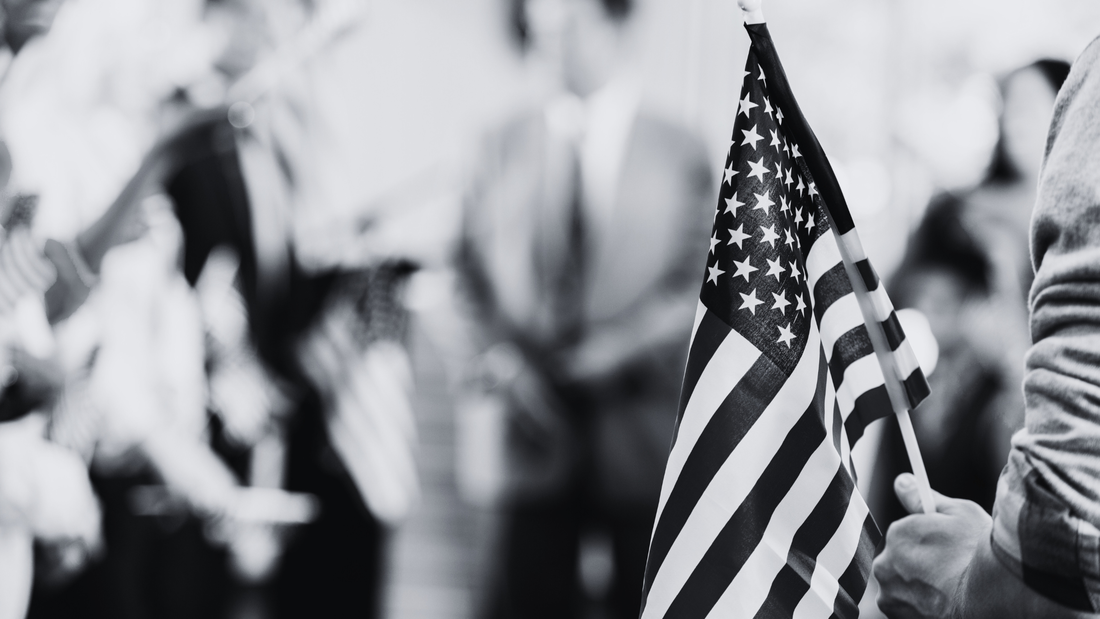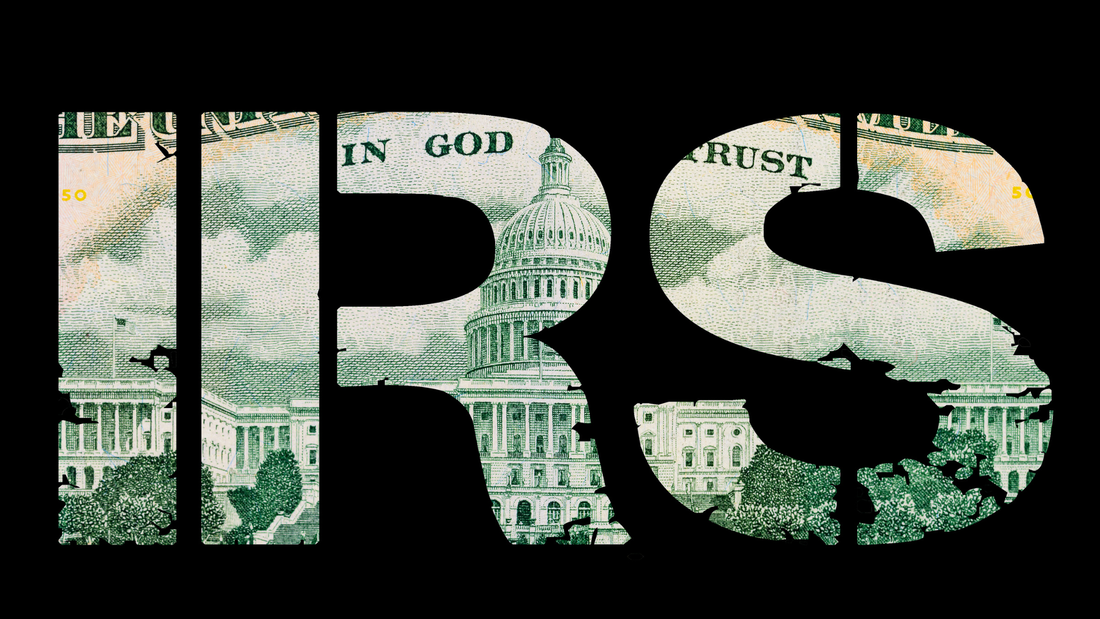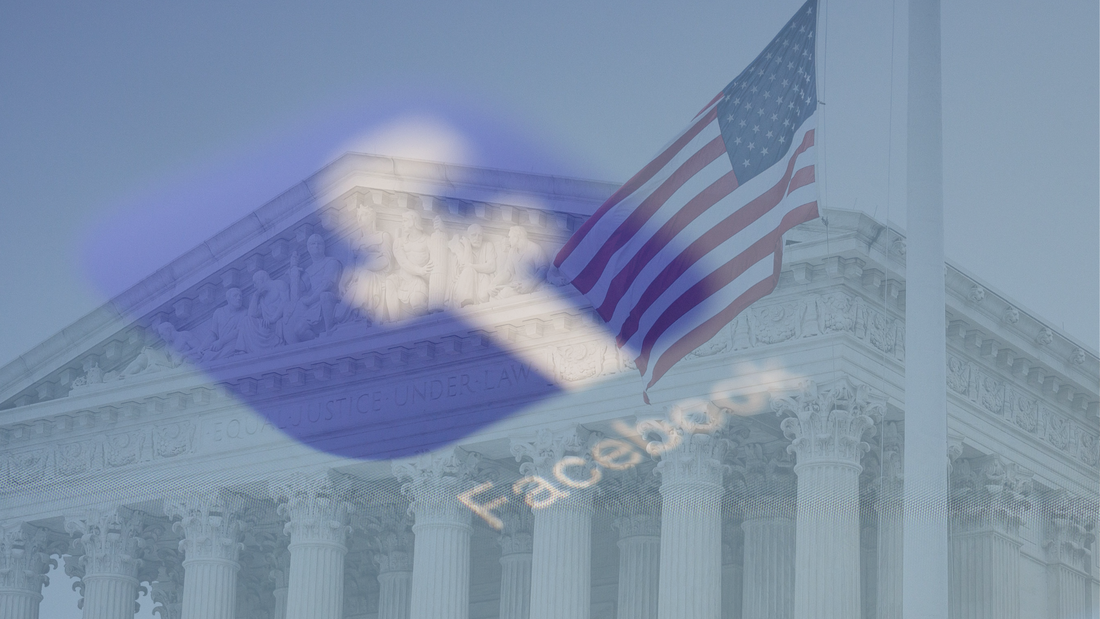|
The doxing of donors is a danger to our democracy.
When donors give to a controversial cause, they count on anonymity to protect them from public backlash. This is a principle enshrined in law since 1958, when the U.S. Supreme Court protected donors to the NAACP from forcible disclosure by the State of Alabama. Undeterred by this precedent, California tried to enforce a measure to capture the identities of donors and hold them in the office of that state’s attorney general, despite the fact that the California AG’s office has a history of leaks and data breaches. Surprisingly, the federal Ninth Circuit upheld that plan. Civil liberties groups filed briefs before the U.S. Supreme Court arguing that this policy is dangerous, not just to the robust practice of democracy, but to human lives. Citizens have lost their jobs, had their businesses threatened, and even been targeted for physical violence, all because they donated to a political or cultural cause. In 2021, the Supreme Court agreed, reversing a Ninth Circuit opinion in Americans for Prosperity v. Bonta. Still, the drive to expose donors – whether progressives going after gun rights organizations or conservatives going after protest organizations – remains a hot-button issue in state politics across the country. Politicians and groups are eager to know: Is George Soros or the Koch Foundation or name-your-favorite-nemesis giving money to a cause you oppose? Thanks to the work of the People United For Privacy (PUFP) foundation, that push to expose is now stopped cold in 20 states. With help from PUFP, bipartisan coalitions in 20 states have adopted the Personal Privacy Protection Act (PPPA) to provide a shield for donor privacy by protecting their anonymity. This movement is spreading across the country, with Alabama, Colorado, and Nebraska having passed some version of this law just this year. “Every American has the right to support causes they believe in without fear of harassment or abuse of their personal information,” says Heather Lauer, who heads People United for Privacy. “The PPPA is a commonsense measure embraced by lawmakers in both parties across the ideological spectrum.” Supporters have ranged from state chapters of the ACLU, NAACP, and Planned Parenthood to pro-life groups, gun rights groups, and free market think tanks. Thanks to this campaign, 40 percent of states now protect donors. For the remaining 60 percent, the power of the internet can expose donors’ home addresses, places of work, family members, and other private information to harassers. The need to enact this law in the remaining 30 states is urgent. Still, securing donor protection in 20 states is a remarkable record given that People United for Privacy was only founded in 2018. We look forward to supporting their efforts and seeing more wins for privacy in the next few years. Following conspicuous leaks of taxpayer information by the IRS and donor information by the New York attorney general’s office, a new Senate bill sponsored by Sens. Todd Young and James Lankford would increase penalties for unauthorized donor disclosure from $5,000 up to $250,000.
“In recent years, donor privacy has been threatened on too many occasions,” Sen. Young said. “This legislation will address the disclosure of donor data to better protect both charitable organizations and their donors.” But is such legislation needed? Our answer is “yes.” Challenges to donor privacy threaten a bedrock First Amendment principle in place since 1958. In that year, the U.S. Supreme Court held that the State of Alabama’s efforts to subpoena the NAACP’s membership records would threaten donors who only wanted to exercise their constitutional right to free association. Fast forward to 2021, when the U.S. Supreme Court struck down a California requirement for compelling donor disclosure for nonprofits. In the majority opinion, Chief Justice Roberts emphasized the entrenched constitutional interest in donor privacy, noting “it is hardly a novel perception that compelled disclosure of affiliation with groups engaged in advocacy may constitute as effective a restraint on freedom of association as [other] forms of governmental action.” That ruling hasn’t dissuaded some states. Arizona in 2022 passed Proposition 211, the “Voters Right to Know Act.” That measure was marketed as requiring disclosure of political “campaign” donors. Instead, it targets any group that speaks out on public policy issues – including nonprofits. It opens the door not just to self-censorship by those who may otherwise be inclined to donate to a cause, but also the possibility of doxing – using online resources for physical, emotional, or financial intimidation, harassment, and cancellation. Donor disclosure has lately been cast as a left-leaning cause – particularly in the wake of Citizens United. In reality, both sides of the aisle are getting in on the action. In the House, two separate GOP-sponsored bills would require donor disclosure by tax-exempt, non-profits in the event they receive donations from foreign nationals. One such bill, introduced by Rep. Nicole Malliotakis (R-NY), would prohibit non-profits that receive foreign donations from donating to a political campaign for eight years. We agree in principle that there is a compelling public interest in non-profits disclosing whether they receive foreign contributions. But naming individual contributors can lead to a host of constitutional concerns – not to mention the possibility of doxing and personal attacks. Not long ago, Mozilla CEO Brendan Eich was forced out of his job when the California Attorney General mandated the disclosure of donors in support of Proposition 8, which supported traditional marriage. Small donors received death threats and envelopes containing white powder. Their names and ZIP codes were helpfully overlaid on a Google Map. Exposure of donor information can also heighten donors’ fears that they, or their businesses, will be singled out by vengeful regulators with political motivations or by activist boycotts. While disclosure efforts are typically couched in the language of protecting democracy, they inevitably empower political trolls to chill speech, suppress disagreement, and organize mobs to punish those they don’t like. The Senate bill takes a thoughtful approach. Officials who leak protected donor information should face legal consequences. And perhaps non-profits should disclose whether they receive foreign contributions, as House bills seek to achieve. Anything more onerous risks the well-established constitutional rights of Americans to, in the words of Justice John Marshall Harlan II, “pursue their lawful private interests privately and to associate freely with others.” Donor privacy is under unprecedented threat across the country. According to a report last month from the non-partisan People United for Privacy, efforts to curb historical privacy protections are underway in no fewer than 31 states.
Matt Nese of People United for Privacy details this threat in a recent RealClear Policy piece, describing the means by which politicians of all political stripes ceaselessly endeavor to dox nonprofit donors, often under the guise of curbing the influence of “dark money” or foreign sources of funding. In practice, it’s rank-and-file domestic contributors – exercising their fundamental speech rights – who end up being harmed the most by such efforts. Look no further than Arizona’s Prop 211, the misleadingly titled “Voters Right to Know Act.” That measure was marketed as requiring disclosure of political “campaign” donors. Instead, it targets any group that speaks out on public policy issues – including nonprofits. It opens the door not just to self-censorship by those who may otherwise be inclined to donate to a cause, but also the possibility of doxing, intimidation, harassment, and cancellation. Multiple legal challenges to Prop 211 are ongoing. Should these challenges make it to the U.S. Supreme Court, history suggests it’s unlikely the justices will uphold the law. The Court first established our bedrock principle regarding donor privacy and the First Amendment in 1958 when it struck down a State of Alabama requirement that the NAACP reveal its donors. That potential for compelled disclosure would almost certainly have led to “harassment, economic reprisal, and physical harm” – danger enough for the Court to act to protect the First Amendment. Such reasoning carried through to 2021 when the Supreme Court struck down a California requirement for compelling donor disclosure for nonprofits. In the majority opinion, Chief Justice John Roberts noted “that it is hardly a novel perception that compelled disclosure of affiliation with groups engaged in advocacy may constitute as effective a restraint on freedom of association as [other] forms of governmental action.” The 2021 ruling hasn’t dissuaded the political class from continuing to push the boundaries when it comes to donor privacy. In Hawaii, SB 997 would require donor disclosure in the case of “[c]ommunications that advocate or support the nomination, opposition, or election of a candidate, regardless of whether the communication expressly advocates the election or defeat of a candidate.” In Washington, legislation is being developed purporting to ban so-called “foreign influenced” entities from participating in the political process if so much as 1 percent of their equity is owned by a foreign interest. Currently, foreign participation in elections is illegal; this is a clear attempt to curb the speech rights of Americans – and particularly non-profits who may rely on donations from large corporations. In these states, the war on donor privacy is not yielding to well-established precedent. This nationwide campaign is predicated on the not-unlikely hope that enough assaults will exhaust the courts and strip donors of privacy, bringing cancellation policies and doxing to donors of all stripes. Protect The 1st will continue to monitor these threats to the privacy necessary to protect free speech in America. The Buckeye Institute, a public policy institute in Ohio, is challenging a long-standing federal law that requires the IRS to demand that nonprofit institutes hand over the identities of their largest donors.
The think tank’s case against IRS collection of sensitive, personal data from Form 990 Schedule B rests on a solid foundation of precedent and practice. Similar measures at the state level, from Alabama to California, have already been stricken by the U.S. Supreme Court on First Amendment grounds. The bedrock principle regarding donor privacy and the First Amendment was established by the Supreme Court in 1958, when it struck down a State of Alabama requirement that the NAACP reveal its donors. That potential for compelled disclosure would almost certainly have led to “harassment, economic reprisal, and physical harm” – danger enough for the Court to act to protect the First Amendment. That reasoning carried through to 2021 when the Supreme Court struck down a California requirement for compelling donor disclosure for nonprofits. Though the California Attorney General promised to keep this private information under lock and key, the state had already compiled an impressive history of accidental disclosures and vulnerability to hackers. In the majority opinion, Chief Justice John Roberts noted early on “that it is hardly a novel perception that compelled disclosure of affiliation with groups engaged in advocacy may constitute as effective a restraint on freedom of association as [other] forms of governmental action.” Protect The 1st added at the time that the disclosure of donor information would be doubly dangerous in the era of flash-mobs, doxing, and cancellation of careers. In Buckeye’s favor as well is the IRS’s long history of failing to protect taxpayer information. In late September, federal prosecutors charged a former IRS consultant, Charles Littlejohn, with the crime of stealing and releasing the tax returns of thousands of Americans between 2018 and 2020. The IRS also had to pay out millions of dollars in settlements to nonprofit organizations who suffered increased scrutiny like Buckeye, and had their confidential applications for tax-exempt status released to the press. In addition, the IRS has repeatedly fallen victim to external data breaches due to inadequate security. The Buckeye Institute is mounting a long-needed challenge to a law that threatens to intimidate free expression. The chilling implications of this IRS statute on the First Amendment alone should be enough for the court to rule in Buckeye’s favor. In April, Protect The 1st reported on two pending cases before the Supreme Court, O’Connor-Ratcliff v. Garnier and Lindke v. Freed, addressing the question of what constitutes a public forum on Facebook. In both lawsuits, public officials blocked criticism from constituents on their social media sites; in both instances, the constituents sued.
Now, the U.S. Supreme Court is set to deliberate the urgent question: When does a personal account become public? This is the first time the Court will address the difference between public and private fora against the backdrop of the digital age. In our Protect The First Foundation amicus brief in O’Connor-Ratcliff, we write: “The state action question in this case implicates two vital First Amendment rights: that of citizens to access government fora, and that of public officials to control with whom and how they communicate when they speak in their private capacities. As this case demonstrates, those rights are in tension when it is not immediately apparent whether a government representative is operating a social media account in her public or private capacity.” The petitioners argue that they should be able to block constituents from their social media profiles, on which they discussed government business, as long as their actions aren’t affirmatively required as one of their government duties and they don’t explicitly invoke state authority. In short, they wish to summon their own First Amendment rights to silence their critics in a public forum. For many years now, Members of Congress have segregated their personal and public accounts. They are correct in doing so, and this situation shows why. The legal issue is at what point does a public official’s actions constitute “state action.” And here, the officials’ social media pages are draped in their status as public servants – even though they began as personal campaign pages. With great regularity, they post about official government business and use their accounts to facilitate their government duties. As such, they cannot then claim that when they operate those accounts they are private actors. Government officials, like everyone else, have First Amendment rights. But they cannot have their cake and eat it too by speaking with the authority of government while erasing the access of their critics to that speech. The fact is that we must – now – delineate the limits and boundaries of social media’s power in the context of public service. If you are a public official, you cannot – must not – be able to silence your critics in a public forum under the auspices of your own First Amendment rights. Sorry. Sometimes you just have to take the heat. The threats to donor privacy keep coming. In 2021, the U.S. Supreme Court ruled 6-3 in Americans for Prosperity v. Bonta against a California law that would have forced non-profit organizations to report the identities of their donors to the state. That bad idea has now wafted across the Colorado River to find new life.
Arizona’s Proposition 211, “The Voters’ Right to Know Act,” would require organizations that promote, support, attack, or oppose a candidate within six months of an election – or mounts any public communication that refers to a candidate within 90 days of a primary – to disclose the identities of donors who give more than $5,000. Former Arizona Attorney General Terry Goddard has said that there is no evidence harassment of donors would be a problem. Does he not watch the news? To dismiss the danger of donors being “doxxed” is to ignore a pile of evidence as high as Camelback Mountain. A few years ago, Mozilla CEO Brendan Eich was forced out of his job when the California Attorney General mandated the disclosure of donors in support of Proposition 8, which supported traditional marriage. Small donors received death threats and envelopes containing white powder. Their names and ZIP codes were helpfully overlaid on a Google Map. And don’t overlook the tense state of our political culture, one in which Rep. Steve Scalise received multiple gunshots and the husband of House Speaker Nancy Pelosi had his skull fractured by a hammer. In both instances, disturbed men acted on political impulses. A chilling effect on the free exercise of one’s First Amendment rights need not come from violence. Exposure can heighten donors’ fear that they, or their businesses, will be singled out by vengeful regulators with political motivations or by activist boycotts. Whispered threats of cancellation can be just as effective as the cancellations themselves. Tellingly, the group behind this measure – the Voters’ Right to Know Committee – discloses the names of small donors, but does not disclose in its most recent official campaign report the corporations and out-of-state PACs behind this ballot initiative. Perhaps this committee’s “dark money” donors appreciate the words of Justice John Marshall Harlan II, who wrote in the NAACP v. Alabama decision that immunity from state scrutiny supports the rights of Americans “to pursue their lawful private interests privately and to associate freely with others.” |
Archives
June 2024
Categories
All
|
ABOUT |
ISSUES |
TAKE ACTION |








 RSS Feed
RSS Feed